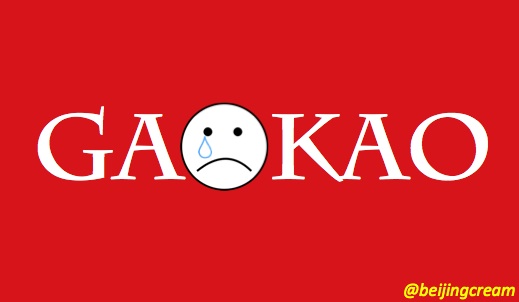 |
| Shanghai |
Andrea changed me
for the better. This should come as no surprise since she embodies qualities of
a philosopher and a teacher. What is strange however is that she did it from
just over 9670 miles away. Andrea attended school with another student—Eris-who
I have interviewed here. Eris told me about her best friend who, like her,
started school and China but finished her undergraduate degree in Australia, and
is now still there finishing up her graduate degree. So while I have not actually met Andrea face
to face, I learned many things from her. I think anyone interested in
understanding the transformative power of education and language will
understand that with email, or Skype or other forms of media a Socratic
encounter can take place across oceans and continents. In Part I of this
interview Andrea describes her transition from a highly selective magnet school
in China to her decision to transfer from her highly ranked university in China
to an Australian Uni (as they are called there).
********************************************************************************
Can you tell us a little about yourself? Where did you grow up and where
did you go to high school?
I am Yue (Andrea), an overseas student in Australia from China. I did a
Bachelor of Arts at Melbourne University, majoring in philosophy and sociology;
and now I am doing a Masters of Teaching (secondary). I was born and grew up in
Shanghai and stayed there until the age of 20. I finished high school and two
years of university there.
How would you describe the education you received in your high school?
Was it really competitive? Was it mostly preparation for the Gaokao? Were
the teachers helpful and approachable? Were there clubs and activities and if
so which were you are part of?
 |
| Pudong Foreign Language High School |
The education I received in my high school was highly competitive
since the start of year 6. The 3 years (10-12) was mainly aimed to prepare for
the Gaokao. This exceptionally competitive exam involves a huge amount of
memorization. This is the part of the exam that most people know about. There
is however, a writing section in which students must craft essay in response to
specific and tough prompts. One of my teachers requires us to write an essay a
week and I developed my writing skills significantly as a result. Our teacher
gave us wonderful feedback but what I recall most was his advice on what we
needed to do in our essay. He said: “you need to learned to dance with
shackles’”. This phrase applies to virtually any writing one does in life but
it encouraged us to write creatively but still within the frame of the
question. He taught us to write creatively and intellectually: this might well
be a definition of great writing overall.
The VCE in Australia is another national exam that determines Uni
placement. While many countries have national entrance exams, the Gaokao, at
least according to many educators, is the most challenging exam in the world.
The teachers were fully committed and saw the exam as their own battle.
However, students were encouraged to take part in clubs and activities in year
10 and 11. In fact, these students were usually leaders in these student
organisations. I learned time management
in the midst of high levels of competition. Many people outside China do not
know that at top schools like mine we are assessed weekly and publically.
Outside on a bulletin board grades a student earns for the week are posted by
name for all to see. For some this instils a huge amount of stress, but for me
I knew that I was a good student and that the weekly results did not change dramatically
from week to week. For my friends and me we did not use this posting as a way
of working against each other; instead, we took it as an opportunity to work
together to demonstrate our commitment to high achievement.
Achieving a high score on the Gaokao is, in effect a boarding pass to the
upper class in China. If a student gets accepted
to a top university his or her chances of getting a great job and being a part
of China’s rapid economic growth is, if not assured, at least significantly
increased. The population in China is
such that millions of students are vying for a scarce resource—a place at the
small number of universities that are currently ranked as among the best in the
world.
You began your college career at ECNU (East China
Normal University). What was the learning atmosphere like? Were the classes
good and which ones were you taking that you would like to highlight?
My first university was ECNU that was a rather conservative and
traditional Chinese higher education institute. As a key university in the
major city of Shanghai, it has a hallowed history and close connections with
the government. The students came from all parts of the country and all walks
of the society. They have mostly gone through the Gaokao and were
extraordinarily hardworking. There was also a university culture that
encouraged student unions and also a pragmatic approach to the pursuit of a career.
 |
| students taking GaoKao |
You decided to make a huge change by transferring to university in
Australia. What factors went into your decision to do this? Why did you pick
Australia and why the school you enrolled in?
In the process of my exchange semester at La Trobe
University, I found that the Australian university curriculum allows more
freedom (at least in year 1) compared to Universities in China. There were
quite a few “aha!” moments throughout my exchange semester when I felt I really
learned something and I felt inspired. I enjoyed studying the four different
arts subjects at that time: philosophy, sociology, anthropology, and art
history. Each of them gave me fresh perspectives of the world, which made that
semester the time I cherish the most. This huge difference made me decide to
stay. I then picked two of them as my
majors at my new school. At the same time, due to the huge effort required for
applying for American universities, I chose to stay in Australia where the
application is “half-done” and I was more familiar with everything. The reputation
of Melbourne University attracted me to apply for their Bachelor of Arts and
enrol there.
 |
| Melbourne |
I have heard many descriptions of
writing essays based on specific prompts but the phrase dancing with shackles
capture the task better than any I have yet heard. Few in the West are aware of
the need to develop strong writing and critical thinking skills for the Gaokao.
Most believe the test is only multiple choice and that the same test is given
all over China. Both beliefs are false.
The questions are far more
challenging than the prompts on the Common Application. The CA prompts are
meant to provide a chance for all kinds of students, good and not so good, to
write about a personal experience. These essays attempt to divide the bright
from the extraordinarily gifted. The only questions that I know in the US that
are similar ate those that come out of the University of Chicago. Because so
few educators know about the essay in China many believe that the Gaokao
rewards only rote learning rather than creative and philosophical
thinking.
 |
| Andrea |
Here are two essays prompts from
this year’s Gaokao. The first was assigned for those taking the text in Hunan Province.
The second was assigned to those taking the exam in Liaonnig Province:
1. It flies upward, and a voice asks if it is tired. It says ‘No’.”
2. A young man was depressed as his career stagnated. He met an old
man by the seashore. The old man grabbed a handful of sands and threw them on
the seashore, then asked him, “Can you find them?” The young men said no. Then
the old man threw a pearl on seashore, and asked him the same question again.
The young man said yes. Then he had an epiphany: one should be something different
before he got recognition
Andrea took those skills with her
to Australia where the courses offered her a greater opportunity to explore
open-ended options. China is just
beginning to incorporate a liberal arts approach for some of its new and top
universities. When this happens, schools in Australia may lose the chance to enrol
exceptionally creative thinkers like Andrea.
Tomorrow, Andrea describes her
experience living in learning in another country. She also highlights something
she did that underscores her potential as an innovative educator who contributes
on a global level: TEDx.




No comments:
Post a Comment